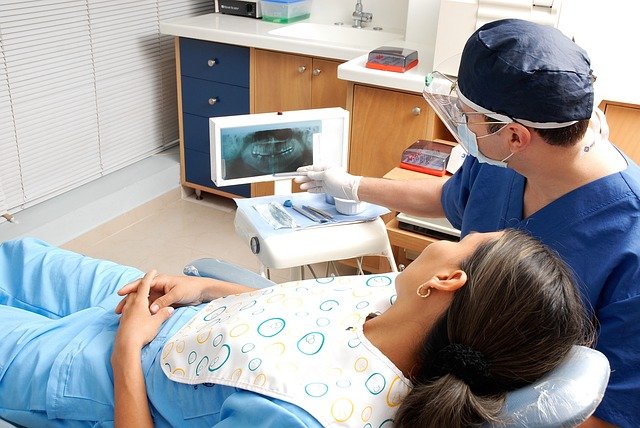Finding Budget-Friendly Dental Care for Seniors in 2025
For many older adults, dental care must balance comfort, consistency, and cost. This article explores how seniors can find care options in 2025 that support their everyday needs—while staying within financial reach and offering essential services without added complexity.

What qualifications should you look for in a senior-friendly dentist?
When selecting a dentist who specializes in senior care, prioritize professionals with geriatric dentistry training or extensive experience treating older adults. Look for dentists who maintain continuing education in age-related oral health issues, such as dry mouth management, medication interactions, and treating patients with mobility limitations. Board certification and membership in organizations like the American Dental Association demonstrate professional commitment. Additionally, seek dentists who offer sedation options and have accessible facilities designed for patients with physical limitations or chronic conditions.
What questions can guide seniors during the dentist selection process?
Before choosing a dental provider, ask about their experience with Medicare patients and whether they accept your specific insurance plan. Inquire about payment plans for expensive procedures like dental implants, and request detailed treatment estimates upfront. Ask about the dentist’s approach to treating patients with chronic conditions like diabetes or heart disease, as these can affect dental care protocols. Questions about emergency availability, office accessibility features, and the availability of transportation services can also help ensure the practice meets your specific needs.
What are some essential dental care tips for older adults in 2025?
Modern dental care for seniors emphasizes prevention and early intervention. Maintain regular brushing with fluoride toothpaste and consider electric toothbrushes if manual dexterity is challenging. Stay hydrated to combat dry mouth, a common issue that increases cavity risk. Schedule professional cleanings every six months and discuss any medication changes with your dentist, as many prescriptions affect oral health. For seniors considering dental implants, maintaining excellent oral hygiene becomes even more critical for successful outcomes and long-term implant health.
What should seniors know about dental insurance and payment options?
Medicare typically covers limited dental services, primarily those deemed medically necessary rather than routine care. Medicare Advantage plans may offer additional dental coverage, including partial coverage for procedures like dental implants. Medicaid coverage varies by state but often includes basic dental services for eligible seniors. Many dental practices now offer in-house financing plans or work with third-party financing companies to make expensive treatments more affordable. Some community health centers and dental schools provide reduced-cost services, making quality care accessible regardless of insurance status.
Understanding Dental Implant Options for Seniors in 2025
Dental implants represent one of the most significant advances in senior dental care, offering a permanent solution for missing teeth that can dramatically improve quality of life. In 2025, implant technology has become more refined, with options specifically designed for older adults who may have bone density concerns or other age-related factors. Mini implants and All-on-4 procedures have made implant treatment more accessible for seniors who previously weren’t candidates for traditional implants. Many dental practices now offer specialized financing for implant procedures, recognizing that while the upfront cost may be substantial, implants often prove more cost-effective than repeated repairs of bridges or dentures over time.
Comparing Affordable Dental Care Providers for Seniors
| Provider Type | Services Offered | Average Cost Range | Key Benefits |
|---|---|---|---|
| Community Health Centers | Basic care, cleanings, extractions | $50-$200 per visit | Sliding fee scales based on income |
| Dental Schools | Comprehensive care, implants | $30-$150 per procedure | Significantly reduced costs, supervised care |
| Federally Qualified Health Centers | Preventive and restorative care | $75-$250 per visit | Accept Medicaid, offer payment plans |
| Private Practice with Senior Discounts | Full range including implants | $100-$400 per visit | Personalized care, modern technology |
| Corporate Dental Chains | Routine and specialized care | $80-$300 per visit | Multiple locations, often accept insurance |
Prices, rates, or cost estimates mentioned in this article are based on the latest available information but may change over time. Independent research is advised before making financial decisions.
Finding affordable dental care as a senior in 2025 requires research, patience, and understanding of available options. By focusing on qualified providers who specialize in senior care, asking the right questions during the selection process, and exploring various insurance and payment options, older adults can maintain excellent oral health without breaking their budgets. Whether seeking routine care or considering advanced treatments like dental implants, seniors have more options than ever before to receive quality dental care that fits their financial situation and health needs.
This article is for informational purposes only and should not be considered medical advice. Please consult a qualified healthcare professional for personalized guidance and treatment.




